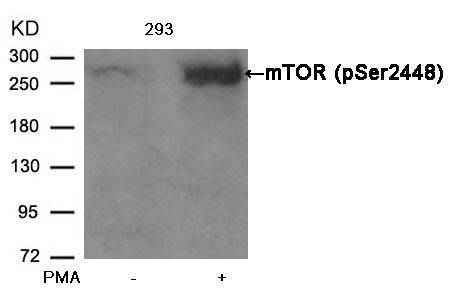
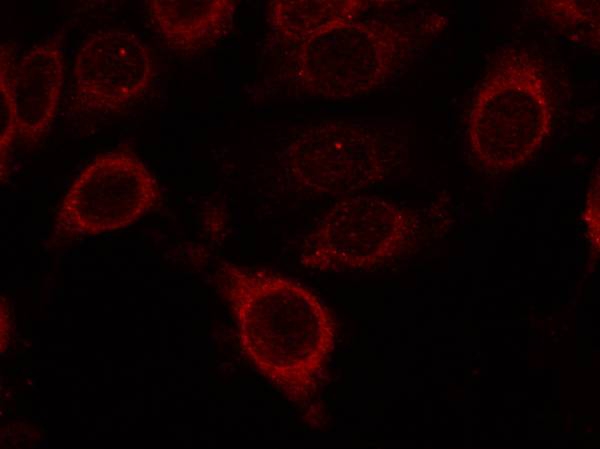
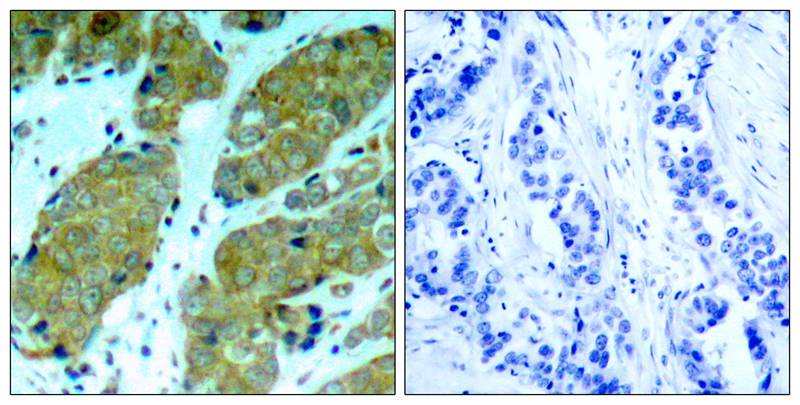
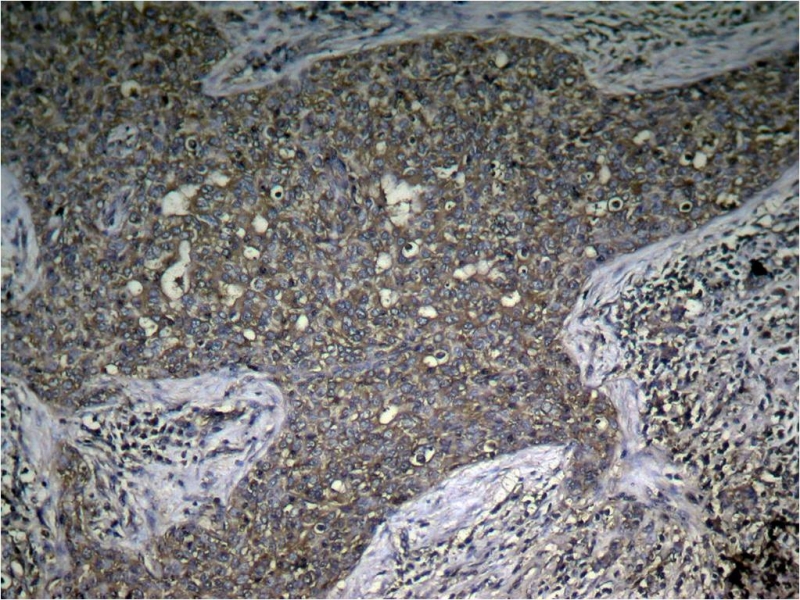
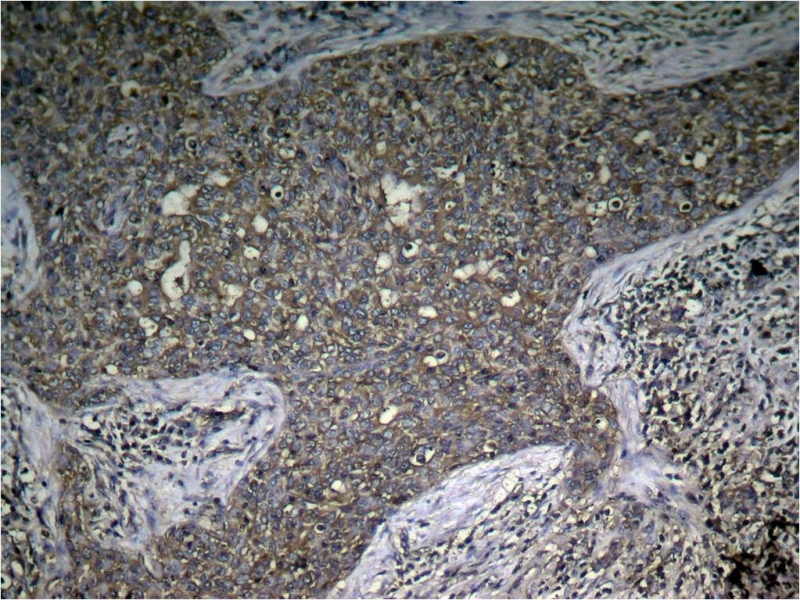
| WB | 咨询技术 | Human,Mouse,Rat |
| IF | 咨询技术 | Human,Mouse,Rat |
| IHC | 1/50-1/100 | Human,Mouse,Rat |
| ICC | 1/100-1/200 | Human,Mouse,Rat |
| FCM | 咨询技术 | Human,Mouse,Rat |
| Elisa | 咨询技术 | Human,Mouse,Rat |
| Aliases | FRAP; FRAP1; FRAP2; RAFT1; |
| Entrez GeneID | 2475; |
| WB Predicted band size | 289kDa |
| Host/Isotype | Rabbit IgG |
| Antibody Type | Primary antibody |
| Storage | Store at 4°C short term. Aliquot and store at -20°C long term. Avoid freeze/thaw cycles. |
| Species Reactivity | Human,Mouse,Rat |
| Immunogen | Peptide sequence around phosphorylation site of serine 2448 (T-D-S(p)-Y-S) derived from Human mTOR. |
| Formulation | Purified antibody in PBS with 0.05% sodium azide. |
+ +
以下是3篇关于mTOR(Phospho-Ser2448)抗体的参考文献及其摘要内容:
1. **"Phosphorylation and regulation of Akt/PKB by the rictor-mTOR complex"**
- **作者**: Sarbassov et al. (2005)
- **摘要**: 研究揭示了mTORC2通过磷酸化Akt的Ser473位点调控其活性,文中使用Phospho-Ser2448抗体检测mTOR的磷酸化状态,证明生长因子刺激下mTORC1的活性与Ser2448磷酸化相关。
2. **"mTOR interacts with raptor to form a nutrient-sensitive complex that signals to the cell growth machinery"**
- **作者**: Kim et al. (2002)
- **摘要**: 首次报道mTOR与raptor形成复合物(mTORC1),通过Phospho-Ser2448抗体验证营养条件变化对mTOR活性的影响,表明该位点磷酸化与mTORC1功能密切相关。
3. **"Rapamycin inhibits mTORC1. but not completely"**
- **作者**: Thoreen et al. (2009)
- **摘要**: 探讨雷帕霉素对mTORC1的部分抑制作用,利用Phospho-Ser2448抗体检测残留mTOR活性,揭示不同抑制剂对磷酸化位点的调控差异。
4. **"Activation of mTOR signaling in colorectal cancer contributes to cell proliferation and poor prognosis"**
- **作者**: Gulhati et al. (2011)
- **摘要**: 通过Phospho-Ser2448抗体分析结直肠癌组织中mTOR活性,发现其磷酸化水平与肿瘤增殖和不良预后显著相关,提示其作为潜在治疗靶点。
以上文献均涉及Phospho-Ser2448抗体在检测mTOR活性及功能研究中的应用,涵盖机制探索与疾病模型。
The mammalian target of rapamycin (mTOR) is a serine/threonine kinase that plays a central role in regulating cell growth, proliferation, metabolism, and survival. Phosphorylation at Ser2448 is a key post-translational modification associated with mTOR activation, often linked to signaling through the PI3K/AKT pathway. This site is phosphorylated by upstream kinases such as AKT or p70S6K, serving as a marker for mTOR complex 1 (mTORC1) activity.
The mTOR(Phospho-Ser2448) antibody specifically detects mTOR protein when phosphorylated at this residue, enabling researchers to study mTOR activation status in various biological contexts. It is widely used in Western blotting, immunohistochemistry, and immunofluorescence to investigate mTOR signaling dynamics in response to growth factors, nutrients, or stress conditions.
This antibody is particularly valuable in cancer research, as hyperactivation of mTOR signaling is common in tumors. It also aids in studying metabolic disorders, aging, and immune responses. Proper experimental controls, including phosphatase-treated samples or phosphorylation-deficient mutants, are essential to confirm specificity. Note that phosphorylation patterns may vary depending on cell type, stimuli, or disease states, requiring careful interpretation of results.
×